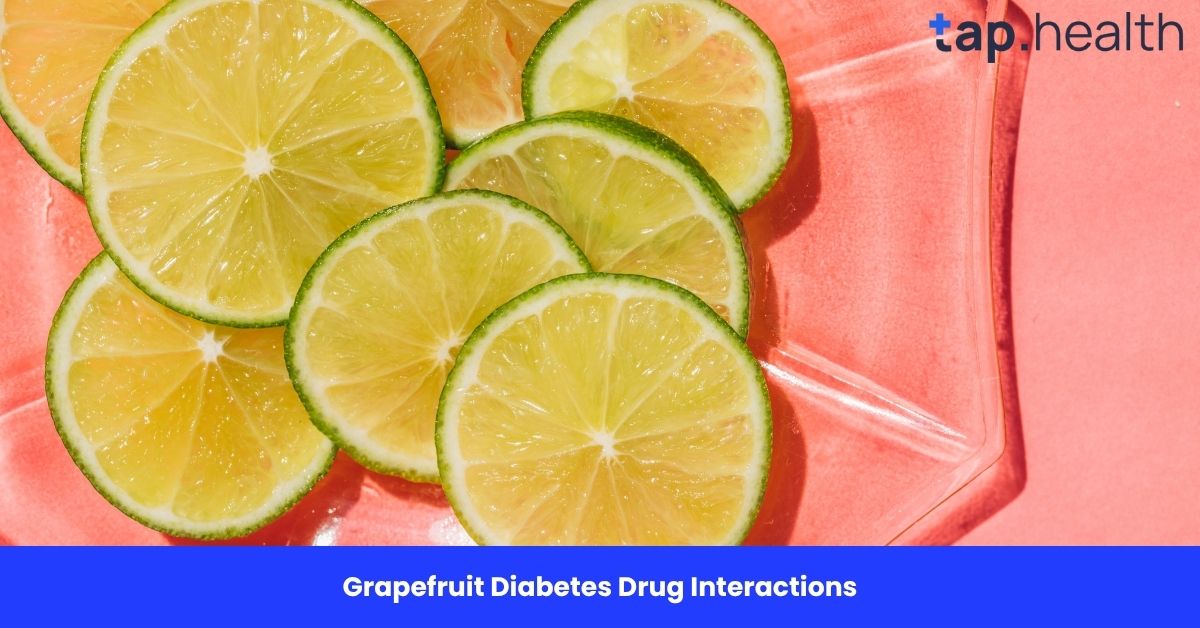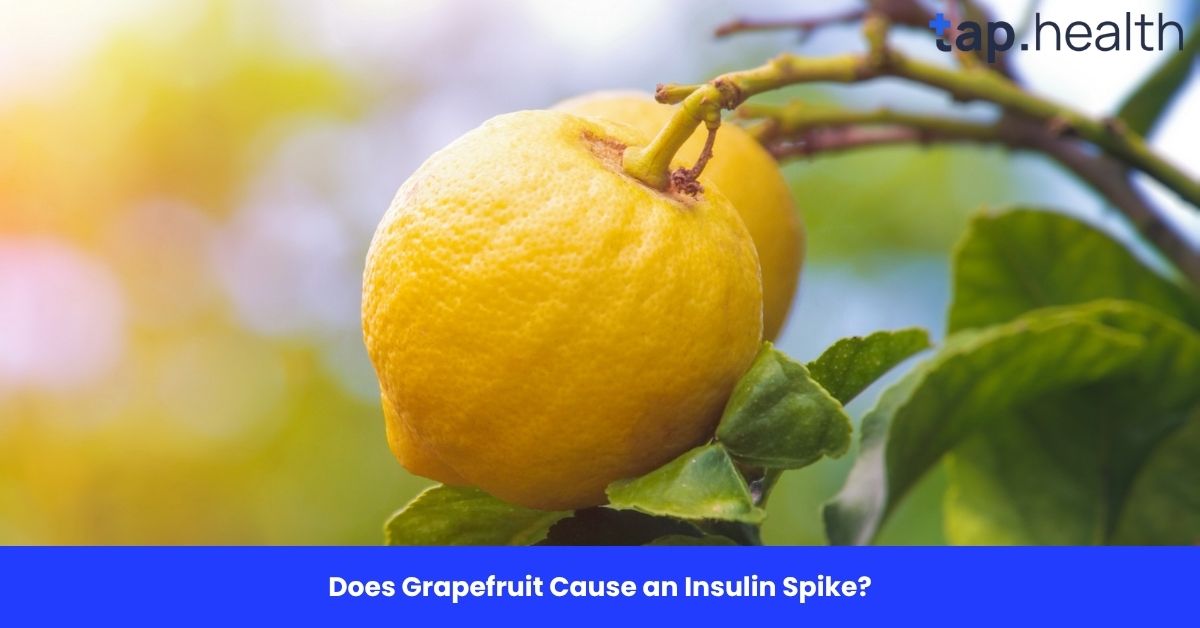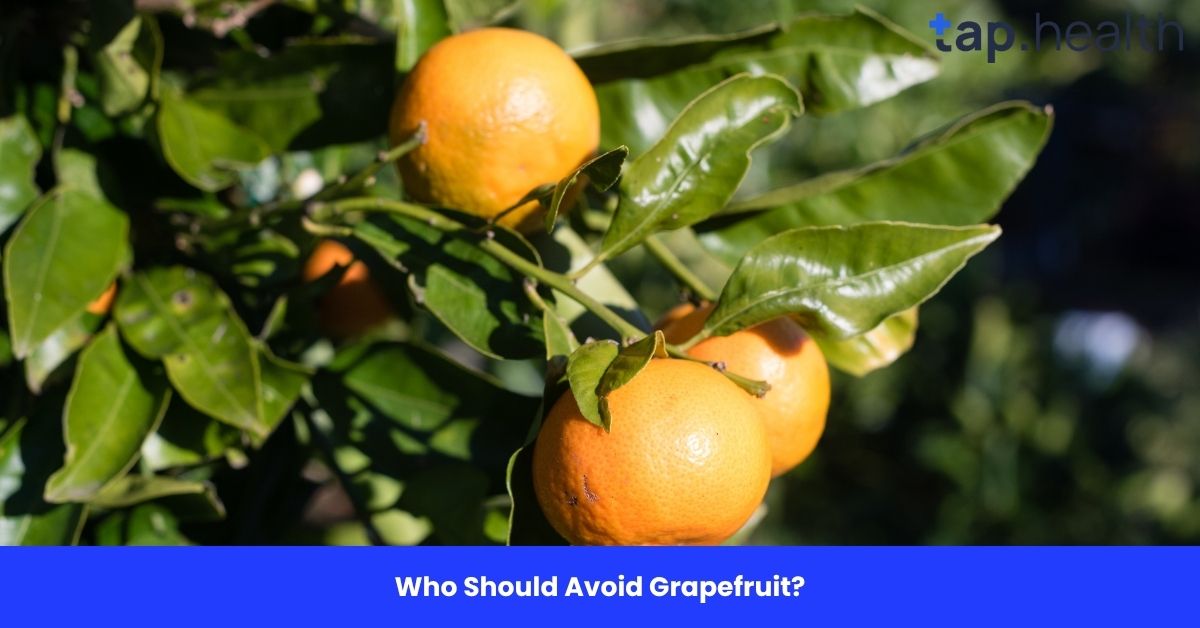Grapefruit is widely known for its tangy taste and impressive health benefits. It’s rich in vitamins, antioxidants, and fiber, making it a popular choice for people looking to maintain a healthy diet. However, if you are living with diabetes or taking medications to control blood sugar levels, you may have heard about potential grapefruit diabetes drug interactions. These interactions can have serious effects on the effectiveness of your medications and your overall health.
In this blog, we will delve into the complex relationship between grapefruit and diabetes drugs, exploring which medications are affected, how the interactions occur, and what you can do to safely include or avoid grapefruit in your diet. By the end of this article, you’ll have a clearer understanding of how to manage your diabetes while considering grapefruit consumption.
What is Grapefruit?
Grapefruit is a citrus fruit with a tart, slightly bitter flavour. It’s loaded with nutrients like vitamin C, fiber, potassium, and antioxidants. It’s often touted for its ability to support immune health, improve digestion, and even aid in weight management due to its low-calorie content.
While grapefruit can be a healthful addition to most diets, it can also have unexpected effects on people who take specific medications, including those used to manage diabetes. This is primarily due to its ability to affect the enzymes responsible for breaking down certain drugs in the body.
How Does Grapefruit Interact with Diabetes Medications?
Grapefruit contains compounds known as furanocoumarins, which have been shown to block an enzyme in the liver called CYP3A4. This enzyme is involved in the breakdown of many drugs, including certain medications used to manage diabetes. When grapefruit inhibits this enzyme, it can cause higher levels of these medications to build up in the bloodstream, leading to possible side effects or unintended effects on blood sugar levels.
How Grapefruit Affects Drug Metabolism
To understand the interaction better, let’s look at how the liver works to break down medications:
- CYP3A4 enzymes normally metabolise drugs in the liver, allowing them to be absorbed and used by the body.
- Furanocoumarins in grapefruit can block this process, slowing down drug metabolism.
- This slowing can result in higher-than-expected drug concentrations in the bloodstream, which can lead to overdose or increased side effects.
Diabetes Medications That Can Be Affected by Grapefruit
Several diabetes drugs are metabolised by the CYP3A4 enzyme in the liver, and grapefruit can interfere with this process. Here are some of the main diabetes medications that may interact with grapefruit:
1. Oral Diabetes Medications (Sulfonylureas)
Sulfonylureas are commonly used to treat Type 2 diabetes by stimulating the pancreas to release more insulin. Grapefruit can increase the concentration of these medications in the blood, leading to hypoglycemia (low blood sugar). This is dangerous, as it can cause symptoms like dizziness, sweating, shaking, confusion, and in extreme cases, seizures.
Common Sulfonylureas Affected by Grapefruit:
- Glimepiride (Amaryl)
- Glipizide (Glucotrol)
- Glyburide (Diabeta)
2. DPP-4 Inhibitors (Gliptins)
DPP-4 inhibitors are used to manage blood sugar by preventing the breakdown of incretin hormones, which help the body secrete insulin when blood sugar is elevated. Grapefruit can potentially interact with these medications, increasing their levels in the bloodstream and causing side effects like dizziness or gastrointestinal distress.
Common DPP-4 Inhibitors Affected by Grapefruit:
- Sitagliptin (Januvia)
- Saxagliptin (Onglyza)
3. GLP-1 Receptor Agonists
GLP-1 receptor agonists are another class of drugs used to help lower blood sugar levels by stimulating insulin release in response to meals. While grapefruit is less likely to interfere with GLP-1 receptor agonists compared to other diabetes drugs, it’s still important to be cautious, as individual reactions may vary.
Common GLP-1 Receptor Agonists:
- Exenatide (Byetta)
- Liraglutide (Victoza)
4. SGLT2 Inhibitors
SGLT2 inhibitors help the kidneys remove glucose from the blood by blocking the sodium-glucose transporter protein. Research is still ongoing, but grapefruit may interact with SGLT2 inhibitors in certain individuals. It’s crucial for those on these drugs to monitor their blood sugar levels closely if they consume grapefruit.
Common SGLT2 Inhibitors Affected by Grapefruit:
- Canagliflozin (Invokana)
- Dapagliflozin (Farxiga)
Read this: How Many Calories in a Grapefruit?
Why Are These Interactions Dangerous?
The interactions between grapefruit and diabetes medications can lead to high levels of the drug in the bloodstream, which can result in unwanted and sometimes dangerous side effects. For example, excess insulin secretion triggered by sulfonylureas combined with grapefruit can cause hypoglycemia, putting you at risk for fainting, falls, or even more serious complications like a diabetic coma.
Moreover, high drug concentrations can also increase the risk of liver damage, kidney problems, and other long-term complications if left unchecked.
Symptoms of Drug Interactions from Grapefruit
If you are taking diabetes medications and consume grapefruit, you may experience the following symptoms:
- Hypoglycemia (low blood sugar): Symptoms include dizziness, confusion, sweating, shaking, or even seizures in severe cases.
- Increased heart rate or palpitations: This can happen if the levels of certain medications in the bloodstream rise too high.
- Dizziness and fainting: Excess drug concentration can lead to a sudden drop in blood pressure.
- Gastrointestinal issues: Nausea, bloating, or abdominal pain may occur as a result of drug interaction.
- Fatigue and confusion: These are common symptoms of high medication levels and low blood sugar.
Can You Eat Grapefruit if You Have Diabetes?
If you are living with diabetes, it is crucial to monitor your grapefruit intake, especially if you are on medications that may interact with the fruit. However, not everyone with diabetes will need to avoid grapefruit entirely. The key is to:
- Consult your doctor: If you’re on diabetes medication, ask your healthcare provider whether you can safely consume grapefruit. They can guide you based on your specific medication and health condition.
- Monitor your blood sugar levels closely: If you do consume grapefruit, make sure to check your blood sugar regularly to ensure it doesn’t drop too low or rise unexpectedly.
- Consider other fruits: If grapefruit is not safe for you, there are plenty of other fruits that provide similar health benefits without the risks associated with drug interactions.
What to Do if You Experience a Drug Interaction
If you suspect that you’ve experienced a drug interaction with grapefruit, follow these steps:
- Stop consuming grapefruit immediately: If you are on medications that interact with grapefruit, avoid eating or drinking grapefruit products.
- Monitor your symptoms: Pay attention to any signs of low blood sugar, dizziness, or other symptoms.
- Seek medical help: If you experience serious symptoms like confusion, difficulty breathing, or fainting, seek medical assistance immediately.
Frequently Asked Questions (FAQs) on Grapefruit Diabetes Drug Interactions
1. Does grapefruit lower blood sugar levels in diabetics?
Grapefruit has a low glycemic index and can help regulate blood sugar levels naturally. However, due to its potential interaction with diabetes medications, it can either increase or decrease blood sugar levels depending on the medication. It is best to consult your doctor before consuming grapefruit.
2. Which diabetes medications should I avoid with grapefruit?
Grapefruit can interact with several diabetes medications, including sulfonylureas (like Glimepiride), DPP-4 inhibitors (like Sitagliptin), and SGLT2 inhibitors (like Canagliflozin). Always check with your healthcare provider before consuming grapefruit.
3. Can grapefruit cause hypoglycemia?
Yes, grapefruit can increase the concentration of certain diabetes medications, such as sulfonylureas, leading to hypoglycemia or low blood sugar. This can cause symptoms like dizziness, shaking, or confusion.
4. Are there any safe alternatives to grapefruit for diabetics?
If you need to avoid grapefruit, there are plenty of other low-GI fruits that can support your health, such as apples, berries, and pears. These fruits provide similar nutritional benefits without the risk of drug interactions.
5. How can I safely consume grapefruit if I have diabetes?
If you want to consume grapefruit, always check with your doctor about possible interactions with your medication. You may be able to consume small amounts occasionally, but always monitor your blood sugar levels carefully.
Conclusion
Grapefruit is a healthy and nutritious fruit, but its interactions with diabetes medications can pose risks for people managing their blood sugar. By understanding how grapefruit affects drug metabolism and being mindful of which medications it interacts with, you can make informed choices about including it in your diet. Always consult your healthcare provider to ensure that grapefruit is safe for you, especially if you’re taking medications to manage diabetes. With the right precautions, you can enjoy the benefits of grapefruit while keeping your health on track.


